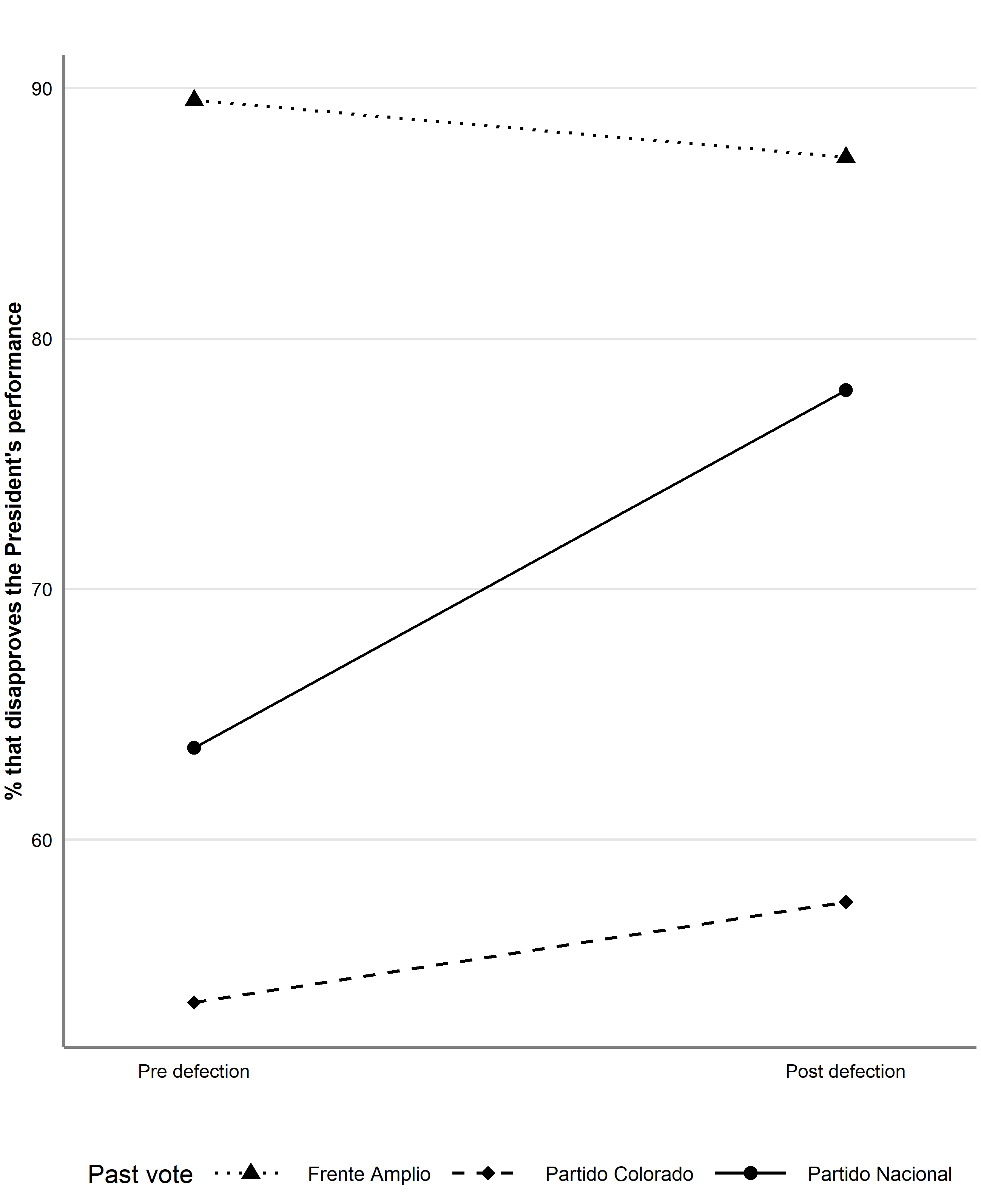Party Coalitions in Presidential Systems: How Defection Hurts Presidential Approval Ratings. With Eliana Álvarez, Peter Enns, Juan Bogliaccini and Rosario Queirolo
Abstract: Recent research has shown that coalitions agreements act as relevant and straightforward cues that citizens use to update their beliefs, including how citizens perceive parties’ ideology, policy positions, and party preferences themselves. However, we still know little about the effect of coalition defection on voters. Partly because the effect of coalitions on voters has been mainly studied in parliamentary regimes, where if a government coalition breaks, it is most likely the case that a government ends, and a new election is held. Nonetheless, in a presidential system, a coalition defection does not overthrow a president as terms are fixed. It might, however, diminish its support, most likely amid voters of the defecting party, as voters can use the defection as a cue to update their attitudes towards the executive. We test this argument using a difference in difference model to study the impact of Uruguayan \textit{Partido Nacional} defection from a coalition government in 2002 at the onset of the worst economic crisis on record. Results show a significant change in existing party voters’ attitudes towards the President after leaving the coalition. These results contribute to the literature on mass-elite linkages and to understand the implications of coalition defections on presidential systems.

